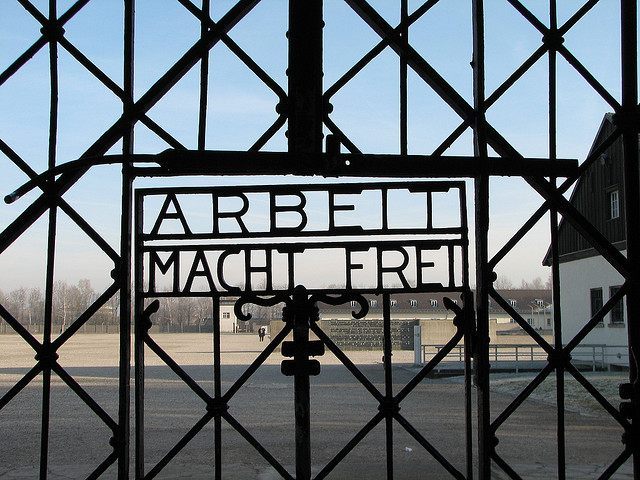BERLIN (AFP) – Two former SS men will go on trial this month for their alleged complicity in the murder of thousands of people at Auschwitz, as Germany accelerates its bid to prosecute ageing Third Reich criminals.
Reinhold Hanning, 93, faces court in the western town of Detmold from Thursday, charged with at least 170,000 counts of accessory to murder in his role as a former guard at the camp in occupied Poland.
Hubert Zafke, 95, will have to answer at least 3,681 counts of complicity in killings in separate proceedings in the eastern town of Neubrandenburg from February 29.
Zafke was a medical orderly at the camp in a period when 14 trains carrying prisoners — including the teenage diarist Anne Frank — arrived at Auschwitz-Birkenau where many would eventually be killed in the gas chambers.
Holocaust survivor Angela Orosz, who will take the witness stand in the Hanning trial, told AFP that all Auschwitz staff “were part of this killing machine.”
“Without these people and their active support for the Holocaust, what happened in Auschwitz, the murder of 1.1 million people in just a few years, would not have been possible, and perhaps many of my family members would still be alive,” said Orosz, who was born in Auschwitz just over a month before it was liberated on January 27, 1945.
The defendants face between three and 15 years in jail, but in view of their advanced age and the period required for any appeals, they are unlikely to serve time.
– ‘Age has no bearing’ –
Nevertheless, Andreas Brendel, who leads the prosecuting team against Hanning, said Germany “owes it to victims and their relatives” to pursue Third Reich criminals.
“Age has no bearing for me,” he said.
Ronald Lauder, president of the World Jewish Congress, agreed.
“If anyone deemed responsible for any aspect of the Holocaust is still able to stand trial, he or she should be prosecuted,” he told AFP.
“As long as it’s possible to bring any of them to justice, it must be done. There is no statute of limitation for mass murder, and there shouldn?t be.”
The two trials come on the heels of last year’s high-profile case against Oskar Groening, dubbed the “Bookkeeper of Auschwitz”.
Groening was sentenced last July to four years in prison, even though he had previously been cleared by German authorities after lengthy criminal probes dating back to the 1970s.
But the legal foundation for prosecuting ex-Nazis changed in 2011 with the German conviction of former death camp guard John Demjanjuk, solely on the basis of his having worked at the Sobibor camp in occupied Poland.
Separately, a German court announced Friday that another former guard at Auschwitz, 93-year-old Ernst Remmel, would have to stand trial in April.
– ‘Facilitated killings’ –
Hanning, like Demjanjuk, was a camp guard, and stands accused of having watched over the selection of which prisoners were fit for labour, and which should be sent to gas chambers.
He is also deemed to have been aware of the regular mass shooting of inmates at the camp, as well as the systematic starvation of prisoners.
“Through his capacity as a guard, he facilitated… the several thousand killings of inmates by the main perpetrator,” prosecutors said.
Hanning has admitted to working in Auschwitz but denies a role in the killings.
Zafke likewise claimed he knew nothing of the mass murder.
Ahead of proceedings, prosecutors said the former medic was “aware of the purpose of the Birkenau camp as an extermination camp” as well as of its structure.
“Given his awareness, the accused lent support to the organisation of the camp and was thereby both involved in and advanced the extermination,” said prosecutors, who are meanwhile seeking to have the presiding judges removed for partiality.
The prosecutors claim that the judges are planning to declare Zafke unfit for trial on the opening day, thereby halting the proceedings.
A first court had earlier quashed the trial, finding that Zafke was suffering from dementia.
But an appeals court overturned that decision. It acknowledged that he had “cognitive impairments and low physical capacity” but ordered regular breaks during the hearings, as well as medical care.

COMMENTS
Please let us know if you're having issues with commenting.